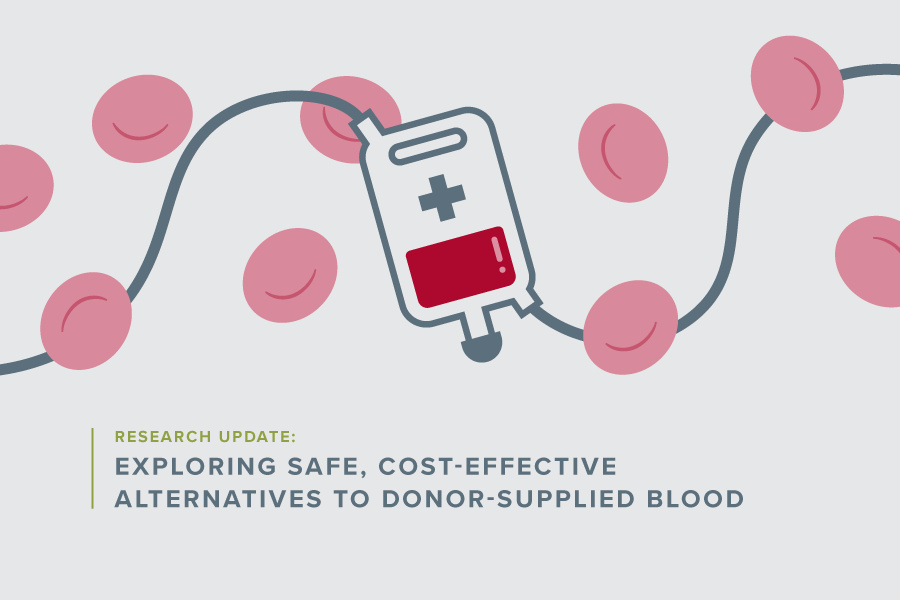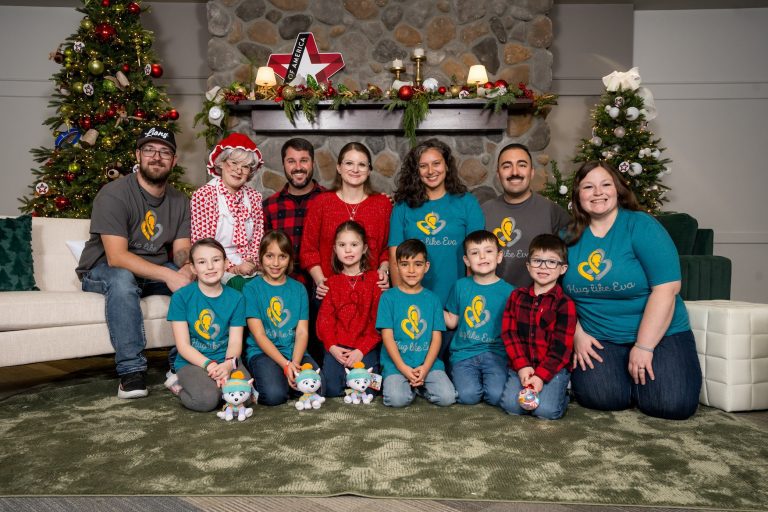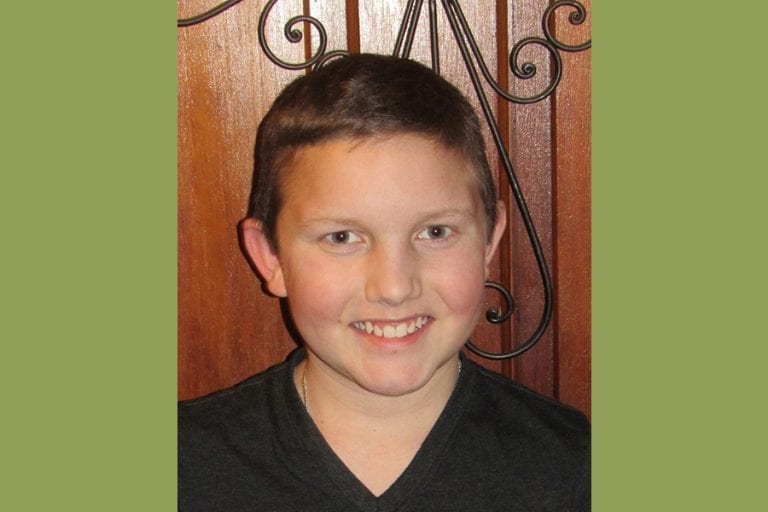Colby Feser initially dreamed of becoming a veterinarian. But an early lab experience before his freshman year connected him to the University of Minnesota Department of Pediatrics, where he eventually realized that he was most passionate about the human side of health — specifically, the exponential impact of solving problems at the laboratory bench.
A decade later, Feser is still working as a researcher in the Department of Pediatrics while he completes his PhD in Comparative and Molecular Biosciences in the College of Veterinary Medicine. And with support from an Emerging Scientist Award from Children’s Cancer Research Fund (CCRF), he’s on a mission: to create better blood products for kids with cancer.
“I think a lot of times we have these big, flashy molecular engineering tools that get directed toward big, flashy diseases, and we forget basic problems, like managing the ability to control bleeding or to dissolve clots,” he said. “It’s good to refocus our efforts on the fundamentals.”
Cancer and the therapies used to treat it can alter the delicate blend of a child’s blood proteins. As a result, children with cancer often require transfusions of blood or blood products, which are frequently in short supply because of a national donor blood shortage. “All in all, donor-derived blood products are hugely problematic,” Feser explained. “Because these products are sourced from the pooled blood of multiple volunteer donors, they are expensive, lack uniformity, require extensive pathogen screening and are not concentrated, making them especially problematic for pediatric patients.”
One solution is to synthesize the blood products using cultured cells in a bioreactor. “That’s a great step in the right direction because it bypasses supply concerns and minimizes pathogen contamination,” he noted.
To address those challenges, Feser is using gene-editing technology to engineer human cells to overexpress blood proteins, with the goal of creating a blood protein concentrate that would be a safe, cost-effective alternative to donor-supplied blood products. “Concentrated products are the answer to fluid overload concerns,” he explained. “While current blood products can be isolated and concentrated, it’s expensive and can result in the destruction of other valuable blood proteins during the process. Our approach would eliminate that waste.”
Many patients require procoagulant proteins, but anticoagulant proteins are equally critical. “As important as stopping bleeding is, we also have to be careful about clots, so it’s a delicate balance,” Feser said. “The philanthropic support of Children’s Cancer Research Fund has really opened up the ability for me to explore the anticoagulation side of this research and to further validate the system we’re working on. This project wouldn’t be possible without Children’s Cancer Research Fund.”
The research could benefit both children and adults with coagulation problems related to a wide variety of diseases. “We’re focused on coagulation proteins, but the system we’ve designed is applicable to many protein replacement therapies,” Feser said. “I think it’s exciting because of the advancements it makes. We’re potentially changing how coagulation is handled in the clinical setting, and on the industry side, we’re improving current replacement protein production systems.”
It’s an exciting time to work in childhood cancer research, Feser noted. “I think we have a lot of tools at our disposal that we didn’t have even when I started 10 years ago in the Peds Department. We have a lot more physical and biological tools that are helping us answer questions that we’ve never been able to answer before,” he said. “If we don’t have the tools in our basket to totally cure a disease, we at least have the tools to improve the outcomes. I think there’s still a massive amount of unexplored potential in those tools that we’re seeing unfold.”
Your donation supports Emerging Scientists
By donating to Children’s Cancer Research Fund, you’re giving emerging scientists the support they need to put their great ideas into practice. Learn more about CCRF's commitment to funding researchers early in their careers.




